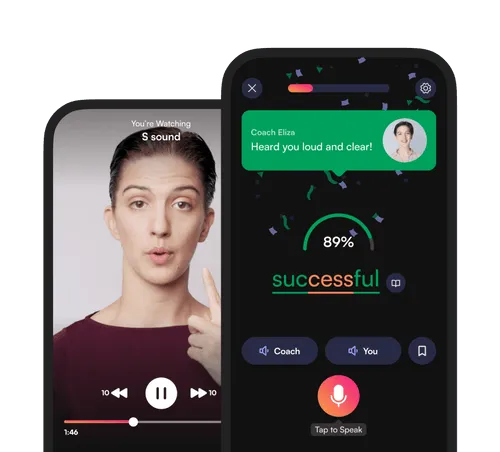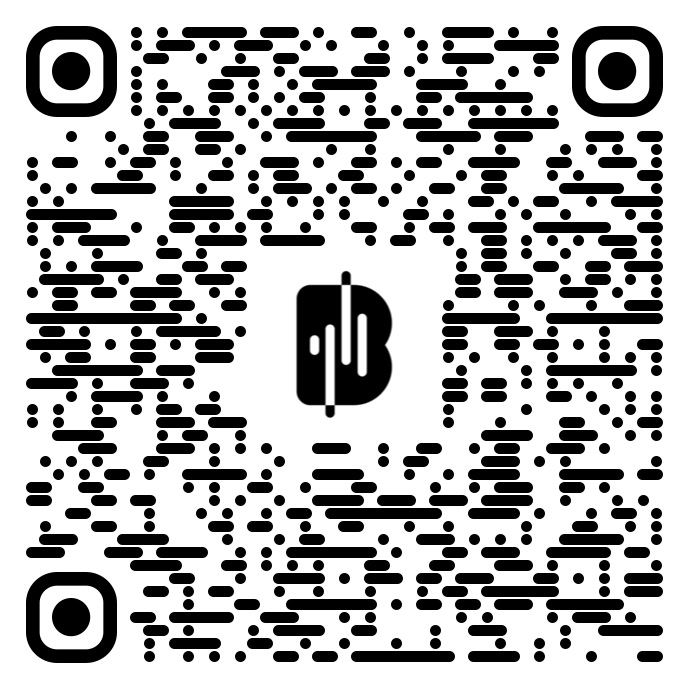Living in America as a non-native speaker means that you must interacts with people from all walks of life, whether in professional or casual settings. Your ability to communicate using both basic and advanced American English within various contexts determines how successful your interactions will be.
While basic phrases are straightforward to understand, advanced English expressions can carry deeper meanings - while this can enhance your communication and improve how others perceive you, it can also act as a hurdle for non-native speakers who are in the process of learning the nuances of the language.
Fine-tune your English for better communication by mastering advanced English phrases that you can integrate into your everyday conversations in America.
1. Keep in touch To "keep in touch" means to maintain regular communication with someone. You can keep in touch with a romantic partner , a friend, a family member, or a colleague.
For instance, you might say, "Even though my mom and I live in different countries now, we make an effort to keep in touch through video calls.”
2. Under the weather An American idiom , feeling “under the weather” is one of those advanced English phrases that simply means you’re not feeling well.
If you want to call in sick to work, stating that you won’t be able to perform your responsibilities, you might say, “I’m feeling a bit under the weather today.”
3. Hit the nail on the head The phrase “hit the nail on the head” means to describe a situation or problem exactly and precisely. It suggests that someone has made an accurate comment regarding an issue.
For example, “In our study group, Maria hit the nail on the head by suggesting that we listen to podcasts to improve our pronunciation. "
Take your free accent assessment Get to know your pronunciation level and get 7 days of lessons for free on the BoldVoice app.
Start Free Trial
4. Out of the blue The term “out of the blue” applies when something happens unexpectedly or without prior warning. It’s used to describe events that come as a complete surprise.
Let’s say your colleague unexpectedly quits her job without informing her teammates beforehand. In this scenario, you could say, “She quit her job out of the blue.”
5. To hang in there Remaining persistent and not giving up, particularly during tough or challenging situations, is what the phrase “to hang in there” means. This could refer to a difficult job, a health challenge, or emotional trauma, as the case may be.
Assuming your junior colleagues are having a hard time at work because they are new, you can encourage them by saying, “The early stages of a new job can be tough, but if you hang in there, it will soon get easier.”
The "ng" sound in the word "hang" can be particularly challenging for some non-native English speakers to pronounce, due to its mouth and tongue positioning and the nasality of the sound. Here's BoldVoice's Coach Eliza to walk you through the mechanics of the "ng" sound:
VIDEO
6. To go the extra mile “Go the extra mile” means to make an additional effort or exceed expectations in achieving a goal. This is one of the advanced phrases used in daily life, often used casually.
For instance, if someone tells you, “I’ll go the extra mile and work on this project over the weekend,” they are expressing their commitment to putting in extra effort beyond what is typically required.
7. In the nick of time When you arrive or do something at the last possible moment, you do it “in the nick of time."
If you get to the airport right as your flight begins boarding, for instance, you’ve made it in the nick of time.
8. Break the ice To “break the ice” means to initiate conversation in a social setting to ease tension and make people feel comfortable.
So, if someone says, “I’m going to break the ice and ask a few questions,” they intend to ease the tension and make everyone feel at ease.
9. Pull someone’s leg To "pull someone’s leg” doesn't literally mean pulling a person by their leg. Instead, it's one of the common phrases that a native English speaker might use to express the concept of making a joke, or deceiving someone in a playful way.
For example, if someone tells you they won the lottery and then says they’re just pulling your leg, they were kidding.
10. Cut corners The phrase “cut corners” refers to taking shortcuts or doing something in a way that saves time and effort. However, the result of this action is often lower quality than the expected result.
Imagine a scenario where students attempt to cheat instead of completing an assignment honestly, “The students have tried to cut corners by copying from a friend’s assignment.”
11. Spill the beans Advanced English expressions like “spill the beans” is used to reveal secret information, often unintentionally.
Interestingly, the expression "let the cat out of the bag" means essentially the same thing. Despite being two very different expressions, these two advanced phrases represent the same concept and can be used more or less interchangeably.
For example, “She accidentally spilled the beans about the surprise party, ruining the whole surprise.” Or, alternatively, you could say, "She let the cat out of the bag and accidentally told Lisa about the surprise party we had planned for her."
12. Break a leg “Break a leg” is a polite way to wish someone luck, especially before a performance or an important event. This might be a tad confusing for foreigners because the phrase sounds like a bad omen. However contrary to this assumption, when someone says “break a leg,” they are offering a wish for success and good fortune in that specific endeavor.
If a friend of yours is performing in a theater production, for instance, you might say to them, "Break a leg! " right before they go on stage.
13. To be on the same page When you’re "on the same page" with a person, you agree or understand something in the same way as them. In professional settings, you can be on the same page with team members on multiple tasks.
For example, if you’re an IT professional , you can call for a final test on a product by saying “Let’s have a quick check-in to ensure we’re all on the same page before implementation.”
14. Cut to the chase To "cut to the chase” means to get straight to the point without wasting time.
During a conversation, someone might say, “Let’s cut to the chase and discuss the main issue.” This simply means they’re not interested in small talk or wasting time.
15. Break the bank When something costs more than one can afford comfortably, we say that it “breaks the bank.”
Assuming you’re looking to buy a new car but the prices are beyond your budget, you may let the vendor know by saying “I'd love to buy that luxury car, but I'm not trying to break the bank.”
16. Call it a day To "call it a day" means stopping work for a day, to resume some other time. After finishing a big task, you might decide it’s time to call it a day and head home.
For example, “The rain started pouring, so we called it a day and postponed the event.”
17. Have something in mind When you consider a specific idea, plan, or intention, it means you “have something in mind.”
For instance, when discussing potential vacation destinations, you might ask, “Do you have something in mind?” In this context, this also means, “Are you thinking of a specific place?”
18. To keep an eye on… If you need someone to watch over or monitor something carefully, you can politely ask someone to “keep an eye on” it.
For instance, if you’re leaving your desk when you’re expecting a call, you might ask a colleague, “Please keep an eye on my phone while I’m gone.”
19. Get over something/someone This phrase entails forgetting or recovering emotionally from something/someone. This is one of many advanced English phrases that refer to the emotional side of a person.
Assuming your neighbor lost her cat and you wanted to say she grieved for a long time, you can say, “It took her a long time to get over the loss of her cat.”
20. Get out of hand When a situation becomes chaotic or difficult to control, we say it has “gotten out of hand.”
For example, the sentence “The party got out of hand when too many people showed up and things became rowdy,” describes a scenario where the situation became unmanageable.
21. Speak of the devil The phrase “speak of the devil” is an idiom used when someone is mentioned, and then that person unexpectedly appears.
It’s one of the more common phrases used in casual conversations, often said humorously or playfully when the timing of the person’s appearance is coincidental or surprising.
For instance, “We were just talking about John and speak of the devil, there he is.”
22. By no means This phrase strongly denies something, indicating that it is not true or possible.
If someone were to say, “Jordan is by no means ready for the exam,” they are emphasizing that Jordan is completely unprepared.
23. Throw in the towel Originating from boxing, where a trainer throws a towel into the ring to stop the fight, this phrase refers to admitting defeat.
For example, “Realizing he couldn’t meet the deadline, he threw in the towel and asked for an extension.”
24. Hit the ground running To "hit the ground running" means to start a task or project with energy, enthusiasm, and immediate productivity.
If someone says, “The students hit the ground running at the beginning of the semester, ” they mean that the students started the semester with a high level of preparedness.
25. On top of the world This is one of the advanced English phrases that expresses happiness, success, or satisfaction. It is often used during a period of peak accomplishment and success.
Assuming you complete a difficult task at work and get promoted, you can say you’re “on top of the world.”
26. Deal with To "deal with” something means to handle, manage, or address a situation or person. It involves taking action or making decisions to resolve or cope with something.
For instance, “it is important to learn how to deal with criticism effectively.”
27. Stumble across This phrase refers to finding something unexpectedly when you do not plan for it.
When cleaning out your storage, for instance, you could say, “I stumbled across an old diary in the basement.”
28. Beat around the bush To "beat around the bush” is one of the more metaphorical advanced English phrases because it doesn’t directly mean beating around the bush. Instead, it involves speaking in a roundabout way or being evasive rather than addressing the issue.
A good example is, “She beat around the bush for several minutes before finally admitting that she had made a mistake.”
To "beat around the bush" has the opposite significance of to "cut to the chase."
29. Blessing in disguise This refers to something that seems bad and unfortunate at first but turns out to be beneficial or positive in the end.
Let's say you missed your flight but escaped the turbulence that occurred during that trip. In this case, you might say, “Missing the flight was frustrating, but it turned out it was a blessing in disguise since the plane experienced severe turbulence.”
30. Having said that… This phrase is like using the conjunctions “but” or “however” after you’ve made a point. It shows you’re going to say something that might contrast what you have just said.
A good example is; “I love going to the beach. Having said that, my skin is very sensitive to the sun so I can't go for long periods of time.”
Alternatively, you can say "that being said" (or even just "that said") to express the same idea: “I love going to the beach. That being said, my skin is very sensitive to the sun so I can't go for long periods of time.”
Expand Your Advanced English with BoldVoice Advanced English phrases are considered to be advanced because they often don’t carry straightforward meanings. That said, native English speakers in America use them multiple times daily and learning the ins and outs of advanced expressions is essential for non-native speakers to master the language.
To fine-tune your speech by incorporating advanced English expressions, you must consciously and deliberately make an effort to learn and practice more advanced common phrases. You can achieve excellence in your speech using the BoldVoice app .
The BoldVoice app is an accent training platform offering personalized coaching to help you master American English and pronunciation. The platform provides lessons from real-life Hollywood coaches, ensuring you receive real-time feedback while learning, and tracking your progress over time.
Sign up for BoldVoice for a free 7-day trial to enhance your pronunciation and speech fluency.









